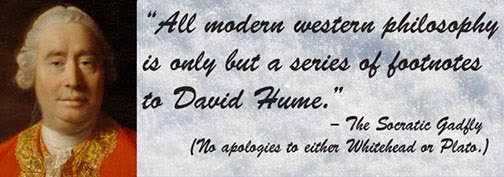
The Experience Machine by Andy Clark
My rating: 3 of 5 stars
Better than Anil Seth, but that's a low bar to clear.
But, that's a good starting point for this review, which, as normal, is extended beyond my Goodreads one.
“Predictive processing” sounds more accurate than “controlled hallucination,” especially one notes the denotative meaning of “hallucination.” (I suspect that’s why some cognitive scientists, philosophers etc., use the latter. Anil Seth, who is IMO a cheap knockoff of Clark [and a blurber of this book!] comes immediately to mind. Hence, my opening paragraph.)
Second, Clark explains the whole idea of feedback loops, and partial parallels to empiricism, better than Seth's book. Again, though, a low bar to clear.
In an mildly extended Interlude about halfway in, Clark dives head-on into “the hard problem of consciousness.” Contra a David Chalmers, he indicates that it’s at least a part of preconceptions, as he first tackles the “meta-problem,” that of the temptation of various dualisms. After that, he says the “hard problem” will look different than often presented, especially if we look at hidden tangled expectations re things like those “pesky qualia.”
But, he never does really seem to tackle the issue as head-on as he promises. More below.
That said, does Clark have it all right? Perhaps, per one of his strongest critics at the end of a New Yorker piece, he’s offering up a Panglossian view of how the mind works.
Per his primary critic, Jakob Hohwy, and going beyond him? Placebos don’t always work. Certainly, “positivity” in attempting to reframe mental illness doesn’t work. (Clark’s ideas on depression don’t seem that different than CBT. His ideas on schizophrenia seem both superficial and largely wrong.) And, the idea that you might even “reset” or “repredict” physical health skirts somewhere halfway close to New age quackery.
And, other aspects? His “interlude” doesn’t really deal that much with pesky qualia. It ignores that qualia are of multiple types. It ignores that some are likely more “grounded” in top-down empirical knowledge than he will admit. “Redness” is an obvious example, with the only differentiating factor being the exact peak frequency in red wavelength in nanometers for your red cone cells vs mine. That said, what does a weaker version of Sapir-Whorf have to say about qualia? If your language doesn’t have a word for “yellow,” is there no “yellow qualia”? What if there’s not even no word, but no concept for, “schadenfreude,” to get to something very non-empirical.
In short, like Seth, the energy reduction angle, re Karl Friston and his free-energy principle, of predictive processing is a no-brainer. But, not unique to this theory. Any theory of cognition in general has something like that at base. Again, though, a low bar to clear, and broadly similar ideas are tied not just to other theories of consciousness, but theories of how the human mind in general operates.
There's one other issue. Predictive processing sounds a lot like AI-type feedback loops, with the "feedback" and "course corrections" being straight and neat. We know, contra many philosophers and cognitive scientists still trying to go down this road, that the brain isn't a computer, or that the embodied brain isn't a robot. Clark may have smoked some of Dan Dennett's shorties from "The Mind's I," but that doesn't make him, or them, any more true.
In addition, while the full schmeer of Clark's idea may have a fair amount of truth for homo sapiens, I doubt it, further "down" the animal evolutionary world, talking about evolutionary animal psychological development. (There's a phrase for a non-Ev Psych approach to that, but I can't remember what it is.)
Also, the "prediction" involved with tracking a batted baseball has been discussed elsewhere, and is not the same as predicting another human being's mental changes. In short, it doesn't well allow for theory of mind. Combine these last two paragraphs together, and while Clark may have a partial theory of human consciousness, it's not complete for humans or non-humans, especially not for the non-human portions of consciousness.
Beyond that, I don't know if Clark disses a Dan Wegner the way Anil Seth did, but it's something to keep in mind. In short, there seems to be, in addition to this being only a partial explainer, an anti-Ockhamite problem. One shouldn't multiply entities beyond necessity, but one shouldn't cast necessary ones away, either.
Finally, I think there’s a fair amount of psychological projection
behind Clark’s theorizing. Probably any philosopher with a theory of
consciousness does some of that (see "Dennett, Daniel"), but the New
Yorker piece ("primary critic," above) plus Clark's own comments cued me
in to the projection level being high here. So, no, don't hang your hats, cranes or skyhooks on what Clark is preaching.
View all my reviews
